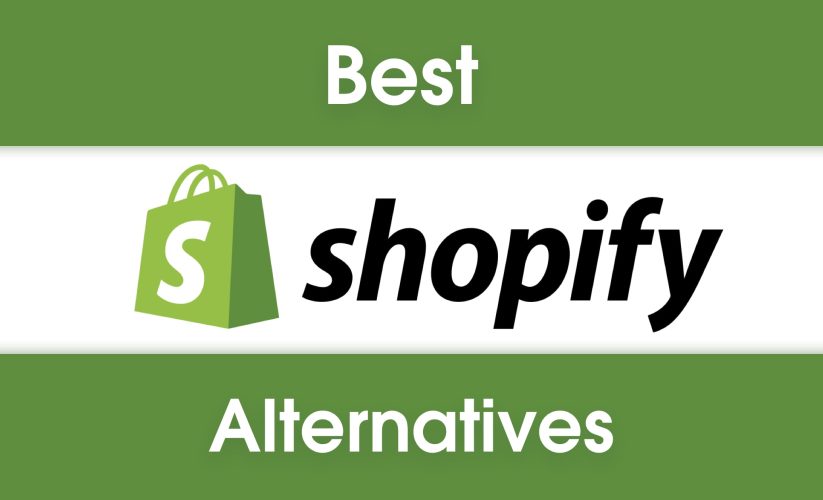
Customizing Your Retail Experience with Shopify POS Alternatives
In the ever-evolving world of retail, providing a unique and tailored customer experience is essential for success. While Shopify POS offers a robust platform for many retailers, it may not always meet the specific needs of every business. Exploring Shopify POS alternatives can provide the flexibility and customization options necessary to enhance your retail experience. This article will discuss the importance of customization in retail, the limitations of Shopify POS, and several alternative solutions that allow for greater personalization and adaptability.
The Importance of Customization in Retail
Customization is key to creating a memorable shopping experience. As consumers become more discerning and expect personalized service, retailers must adapt to meet these demands. A customized retail experience can lead to:
- Increased Customer Engagement: Tailoring interactions to individual preferences fosters a deeper emotional connection with customers.
- Enhanced Loyalty: Personalized experiences encourage repeat business, as customers are more likely to return to brands that understand their needs.
- Improved Sales: Customized recommendations and promotions can lead to higher conversion rates and increased average order value.
With the right tools, retailers can create a shopping environment that resonates with their target audience, ultimately driving sales and fostering brand loyalty.
Limitations of Shopify POS
While Shopify POS is a popular choice for many retailers, it has limitations that may hinder customization efforts:
1. Limited Customization Options
Shopify POS offers a standardized interface and functionality that may not cater to unique business needs. Retailers with specific requirements might find it challenging to tailor the system to fit their operational model.
2. Transaction Fees
Shopify POS comes with transaction fees that can accumulate quickly, particularly for high-volume sellers. This cost can impact profit margins and may deter businesses from implementing more customized solutions.
3. Integration Challenges
While Shopify integrates well with its own ecosystem, businesses relying on third-party tools for accounting, inventory management, or customer relationship management may face difficulties in achieving seamless integration.
4. Industry-Specific Features
Certain industries, such as hospitality or specialized retail, may require features that Shopify POS does not provide. Retailers in these sectors may find more suitable solutions among dedicated POS systems.
Exploring Shopify POS Alternatives
To enhance customization and create a more tailored retail experience, consider the following Shopify POS alternatives:
1. Square POS
Square POS is known for its user-friendly interface and flexibility, making it an excellent choice for small to medium-sized businesses.
- Key Features:
- Customizable sales reports
- Inventory management with stock alerts
- Customer engagement tools, including loyalty programs
- Integration with various third-party applications
- Benefits: Square’s adaptability allows retailers to create a personalized experience by leveraging customer data to make targeted recommendations and offers.
2. Lightspeed Retail
Lightspeed Retail is a cloud-based POS system that excels in inventory management and customization options tailored for retail businesses.
- Key Features:
- Advanced inventory tracking and management
- Customizable product categories and tags
- E-commerce integration for a unified experience
- Robust analytics for data-driven decisions
- Benefits: Lightspeed’s powerful reporting and inventory management features enable retailers to better understand customer preferences and adjust their offerings accordingly.
3. Vend
Vend is a cloud-based POS solution that provides a range of features designed for retail businesses.
- Key Features:
- Real-time inventory tracking and management
- Customer loyalty programs and personalized promotions
- Multi-store capabilities for managing multiple locations
- Integration with various e-commerce platforms
- Benefits: Vend’s user-friendly interface and customization options make it a favorite among retailers looking to enhance customer engagement and streamline operations.
4. Merantia
Merantia offers a versatile POS system designed for small to medium-sized businesses, allowing for significant customization and adaptability.
- Key Features:
- Customizable app integrations
- Comprehensive inventory management
- Detailed sales analytics and reporting
- User-friendly dashboard for easy navigation
- Benefits: Merantia’s flexibility enables retailers to tailor their POS experience to their specific needs, optimizing performance and enhancing the customer journey.
5. Toast
While primarily aimed at the restaurant industry, Toast provides features that can also benefit retail businesses that serve food and beverages.
- Key Features:
- Menu management and customizable options
- Integrated payment processing
- Real-time reporting and analytics
- Employee management tools
- Benefits: Toast’s versatility and industry-specific features make it suitable for businesses requiring a unified solution that enhances customer experiences.
6. Clover
Clover is a customizable POS system that allows businesses to tailor their setup with various hardware options and applications.
- Key Features:
- Customizable hardware options for different retail environments
- Inventory management and tracking
- Customer engagement tools, including loyalty programs
- Detailed analytics and reporting capabilities
- Benefits: Clover’s adaptability allows retailers to create a personalized shopping experience that meets specific operational requirements.
Steps to Customize Your Retail Experience
To effectively customize your retail experience using a new POS system, follow these steps:
1. Assess Your Business Needs
Evaluate your specific business requirements, including the level of customization you need, the complexity of your inventory, and your target customer demographics.
2. Research Alternatives
Explore various Shopify POS alternatives, comparing features, pricing, and user reviews. Look for systems that offer the customization options you require.
3. Implement the New System
Develop a plan for transitioning to the new POS system, including timelines, training for staff, and data migration strategies.
4. Train Your Team
Provide comprehensive training for your staff on the new system. Ensure they understand how to leverage customization features to enhance the customer experience.
5. Monitor and Adjust
After implementing the new system, monitor its performance and gather feedback from employees and customers. Make adjustments as necessary to optimize operations and improve the shopping experience.
Conclusion
Customizing your retail experience is essential for staying competitive in today’s market. While Shopify POS is a popular choice, exploring Shopify POS alternatives can provide the flexibility and customization options necessary to create a tailored shopping environment. By considering alternatives like Square, Lightspeed, Vend, Merantia, Toast, and Clover, retailers can enhance their operations and better meet customer needs. Investing in the right POS system will not only help you create a unique retail experience but also pave the way for long-term success.





